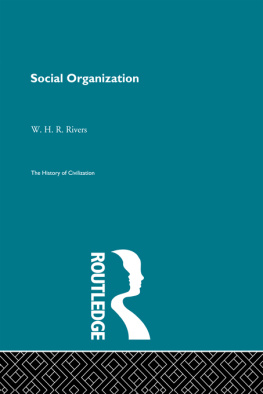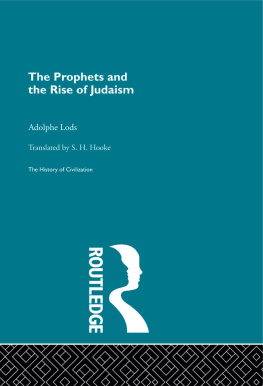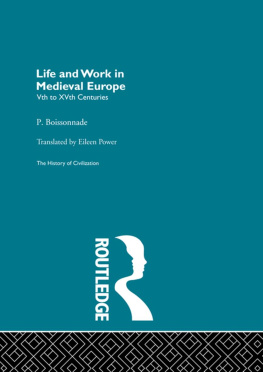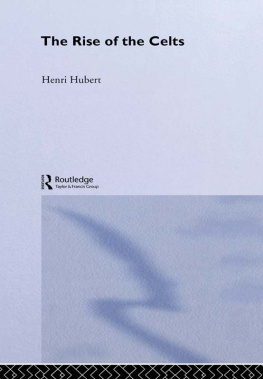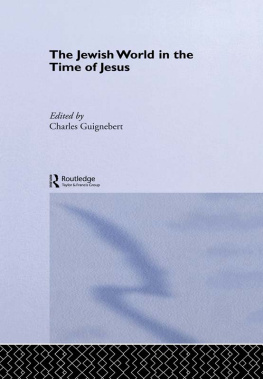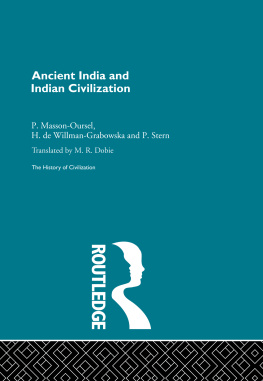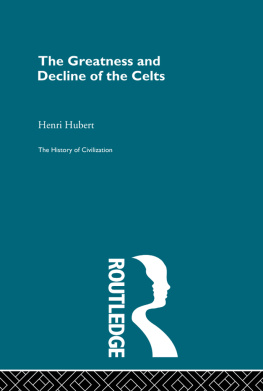THE HISTORY OF CIVILIZATION
PRIMITIVE ITALY
THE HISTORY OF CIVILIZATION
General Editor C. K. Ogden
The History of Civilization is a landmark in early twentieth Century publishing. The aim of the general editor, C. K. Ogden, was to "summarise in one comprehensive synthesis the most recent findings and theories of historians, anthropologists, archaeologists, sociologists and all conscientious students of civilization." The History, which includes titles in the French series L'Evolution de l'Humanit, was published at a formative time in the development of the social sciences, and during a period of significant historical discoveries.
A list of the titles in the series can be found at the end of this book.
First published in 1927
by Routledge, Trench, Trubner
Reprinted 1996, 2000
2 Park Square, Milton Park,
Abingdon, Oxon, OX14 4RN
&
270 Madison Ave,
New York NY 10016
Transferred to Digital Printing 2008
Routledge is an imprint of the Taylor & Francis Group
1996 Routledge
All rights reserved. No part of this book may be reprinted or utilized in any form or by any means electronic, mechanical, or other means, now known or hereafter invented, including photocopying and recording, in any information storage or retrieval system, without permission in writing from the publishers.
British Cataloguing in Publication Data
ISBN: 0-415-15580-0
ISBN Roman Civilization (6 volume set): 0-415-15613-0
ISBN History of Civilization (50 volume set): 0-415-14380-2
Publishers Note
The publisher has gone to great lengths to ensure the quality of this reprint but points out that some imperfections in the original may be apparent
The Miracle of Rome
THERE is nothing more remarkable in world history than the concatenation of contingencies that led to Rome's assumption of the leading rle, different from that of Athens, but no less important. And so we may speak of the miracle of Rome in the sense which we have previously defineda surprising conjunction of circumstances, an exceptional success. A combination of contingencies had created the citywhich was to create the Empire, an empire better organized than any that had gone before, equipped with so strong an armament that it would survive as a model when the Empire had itself crumbled to pieces.
What is known of primitive Italy, the birth of Rome, her growth, the extension of her conquering activity, the gradual assimilation of the peoples of Italy and then of the Mediterranean, is the subject matter of the volumes which open and, close the series on Rome (Primitive Italy and The Roman Empire). Three volumes define the nature and action of this Roman genius which has produced such astonishing results so surelyat least in appearance. One, designed to study the work of thought and play, defines what original contribution this genius made or what it owed to Greece in the life of the spirit. Two others reveal it at work perfecting social life. Finally, two volumes, attached to this series, are designed respectively to summarize and trace in the Roman world the economic development of humanity and to introduce the Celts, since it is through their contact with Rome that the latter truly began to play their part in world history. As the reader knows, we have adopted this principle: since historical exposition cannot deal simultaneously with all the varied and unequally significant facts which take place at the same time, we introduce the several countries and peoples at the precise moment when they become active elements in evolution, accelerating or retarding factors of logic.
It is a happy contingency that two peoples existed in the Mediterranean basin endowed with such contrasted gifts as the Greeks and the Romans. The Roman was as practical, prosaic, prudent, and realistic as the Greek was unfettered, mobile, inventive, speculative, and idealistic in spirit. He had a feeling for discipline and a taste for order. He was intellectually timid, but bold and aggressive in the conduct of life. He lacked imagination, but was endowed with a remarkable strensth of mind.
Is this character the expression of "race" or of "environment"? Here the reader will see fully verified the theses of our collaborators, Eug. Pittard and L. Febvre. In origin the Romans are on ethnic compost,
History, far more than anthropology and geographywe observe it more and more is logic. Contingency furthers or hinders this logic, but it is the principle of intelligibility.
In this volume the reader watches the building, stage by stage, of this empire, one of the vastest that the world has ever seen, and the one which, we repeat, has undoubtedly exercised the most decisive influence on the organization of human societies.
The subject dealt with here has attracted many great spirits, a Machiavelli, a Bossuet, a Montesquieu. But its study is resumed with fresh resources and with all aids with which history is to-day provided by auxiliary sciences anthropology, archaeology, epigraphy, and philology. The fact cannot be over-emphasized that history is gradually being transformed' by the convergence of the results of the most diverse disciplines, some of which are, in a sense, militant and wrest from, the earth the secrets of the past. The history of Rome had been arranged by the Roman annalists, and a portion of this arrangement had passed into the historical canon, so to speak. Now the reality of her origins is becoming visible stripped of adornments. And in this volume, so accurate and illuminating, the results of long and multiple efforts, hitherto but little known, will replace the legend and will enter the domain of common knowledge.
The lamented, Jacques de Morgan has painted his picture of Prehistoric Man in masterly outlines on a vast canvas. In the present volume it is fascinating to watch the details being filled in as far as the early populations of Italy are concerned, as has been or will be done in other domains in some volumes of our first section. The rle of the Etruscans in particular, that strange people which, side by side with the Hittites and the AEgeans, has been one of the latest and most curious revelations of history, is now clear and distinct. And an arresting spectacle, novel for those who have not followed step by step the works of erudition, is provided by the formation of the city herself diverse tribes, distinct villages upon the hills, a frontier in the Tiber plain, conflicts and alliances alike inspired by economic interests, a unity in course of creation which becomes unifying.
Unity did not radiate over Greece from any Greek city. Despite the phalanx, Macedon missed Balkanic unity. The civitas romana expanded to embrace the whole world. How was it that Urbs and Orbis ended by coinciding? How was Roman order, the pax romana, established?
For long, failing the designs of Providence, men pinned their faith at least to the designs of the Senate:
Tu regere imperio populos, Romane, memento.
And this idea the Senate deliberately resolved " to invade every land " is to-day jar from being eliminated. " We are prone to imagine them ( the Patres) pursuing step by step, with an unerring and patient ' method,' without letting themselves be distracted from an object once envisaged, the execution of grandiose ' plans ' boldly conceived ."


